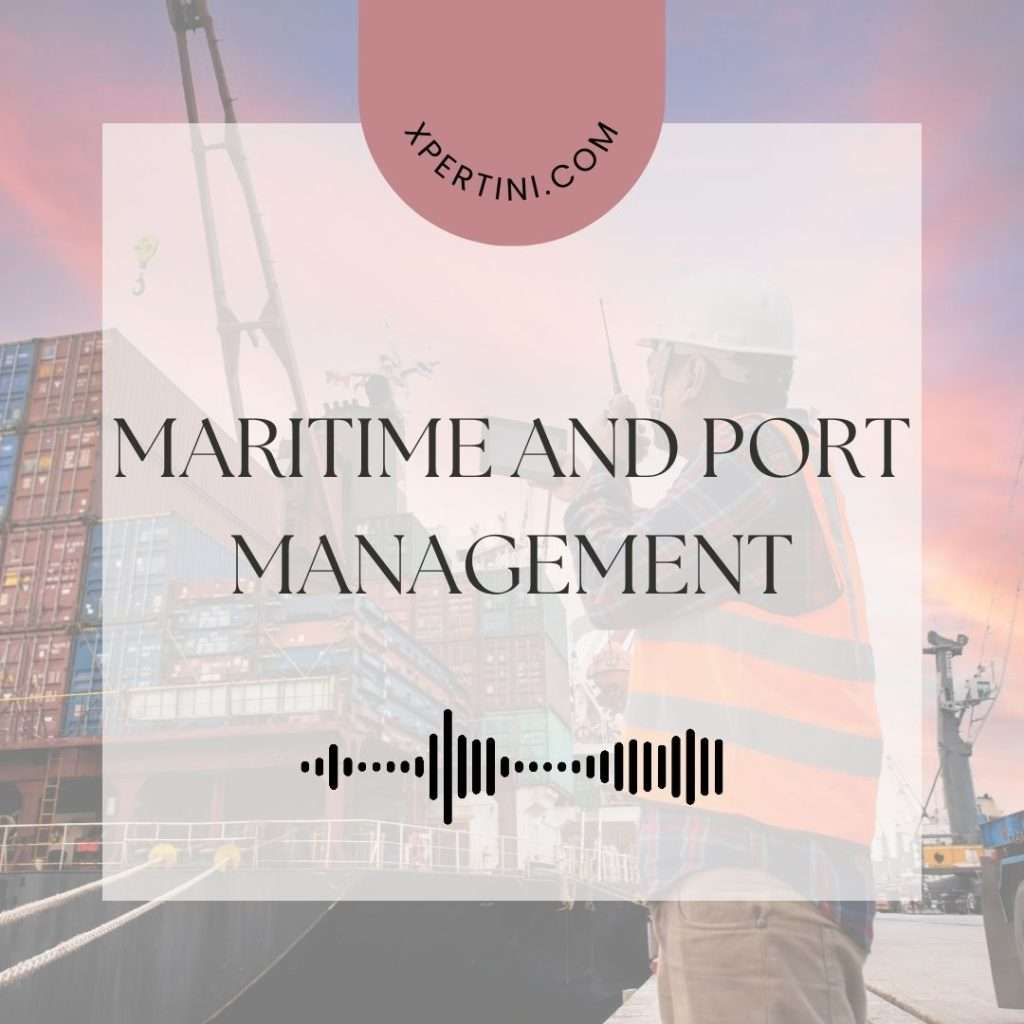Maritime and Port Management
Course Summary
In this comprehensive maritime management course, we delve into the operations and strategic frameworks governing the global maritime and port industry. Through a meticulous exploration of key principles, we decipher the multifaceted aspects of maritime logistics, risk management, regulatory frameworks, and the infusion of technology.
Starting on this educational journey, you’ll navigate the economics of global shipping, understanding its pivotal role in trades. From revealing the fabric of maritime risk management to implementing safety protocols in port operations, we equip learners with practical insights into mitigating challenges in this field.
Venturing further, the course illuminates the regulatory landscape governing international maritime activities, outlining compliance requirements and their consequential implications. As we delve into the integration of cutting-edge technology, you’ll discover how digital solutions are revolutionizing port efficiency and maritime management.
Strategic management principles take center stage in optimizing port performance, elucidated through compelling case studies showcasing successful strategies. Following this, we delve into the environmental impact of maritime activities, emphasizing sustainable practices that resonate with the industry’s growing commitment to ecological responsibility.
Closing the educational voyage, the course navigates the diverse career opportunities within the maritime sector, offering guidance on career development and advancement. Whether you’re an aspiring maritime professional or seeking to augment your knowledge, this course provides an insightful voyage through the currents of the maritime industry, preparing you to navigate its challenges and seize its myriad opportunities.
Course Overview
This course provides a comprehensive understanding of Maritime and Port Management, essential for individuals pursuing a career in the maritime industry or those seeking to enhance their knowledge in this field. Participants will gain insights into the operations of ports, shipping, and maritime logistics, preparing them for roles in management and decision-making within this sector.
Course Objectives
Understand the fundamental principles of maritime and port management.
Analyze the historical evolution and significance of maritime activities.
Explore the key components and functions of modern ports.
Evaluate the impact of global shipping on the maritime industry.
Develop skills in risk management and safety protocols within maritime operations.
Comprehend the regulatory frameworks governing maritime activities.
Identify emerging trends and technologies in the maritime and port sector.
Apply strategic management principles to optimize port efficiency.
Acquire knowledge of environmental sustainability in maritime practices.
Explore diverse career opportunities within the maritime industry.
Course Outcomes
Identify and describe the core components of a functioning port.
Analyze historical events that have shaped the modern maritime industry.
Evaluate the economic impact of ports on regional and global trade.
Apply risk management strategies to maritime operations.
Demonstrate an understanding of international maritime regulations.
Analyze the role of technology in enhancing port efficiency.
Develop strategic management skills applicable to the maritime sector.
Assess the environmental sustainability practices in maritime operations.
Identify and analyze emerging trends in the maritime industry.
Explore and evaluate diverse career opportunities within maritime and port management.
Course Audience
Individuals aspiring to pursue a career in maritime and port management.
Professionals in the maritime industry seeking to enhance their managerial skills.
Students and graduates interested in gaining a comprehensive understanding of maritime operations.

